calsfoundation@cals.org
Dota (Independence County)
Dota (pronounced Doe-dee or Doe-tee) is a historic community near Dota Creek, which runs into the Black River. Dota is located just off the WPA Road between Cord (Independence County), which is two and half miles to the north-northeast, and Charlotte (Independence County), which is about four miles to the north-northwest. Dota Old River is a lake near where Dota Creek empties into the Black River.
Dota is a corruption of the French word d’eau, meaning water. D’eau became Doty and then Dota. The old military road ran through D’eau Bayou (which later became known as Dota Creek). The Jackson Military Road was laid out in 1831 from St. Louis, Missouri. It roughly parallels the old Southwest Trail as it entered the Arkansas Territory from Missouri in what is today Randolph County near Pocahontas. The road crossed the Eleven Point River and the Strawberry River south of Lynn (Lawrence County), continuing south-southwest to Walnut Grove (Independence County), bypassing Batesville (Independence County). The road then crossed Bayou Dota to Rutherford (Independence County) and across the White River. It continued up the steep southern bank through the Rosie Valley to Pleasant Plains (Independence County) on to Little Rock (Pulaski County) and beyond.
Geologist George William Featherstonhaugh in 1834 described his travels along the Military Road in his Excursion Through the Slave States, from Washington on the Potomac to the Frontier of Mexico; with Sketches of Popular Manners and Geological Notices (originally published in 1844). Featherstonhaugh was generally impressed by the new road, a marked improvement over the Southwest Trail, but he found the southern river bank of the White River so steep to climb that he had to unload his wagon before his horse could pull it up.
Thomas Todd Tunstall was the pilot of the Waverly, the first steamboat on the upper White River, which arrived at Batesville in January 1831. Tunstall decided to stay in Independence County, becoming the postmaster at Sulphur Rock (Independence County) in 1834. Besides his steamboat and other business interests, Tunstall was a racehorse enthusiast. He invested in a large farm on Dota Creek, where he bred and raced champion horses. He had a race track on his Dota Creek farm, which became a popular attraction before the Civil War. Tunstall is also credited with founding Jacksonport (Jackson County). Tunstall died during the Civil War and is buried in Pleasant Hill Cemetery (a.k.a. Tunstall Cemetery) near Dota.
Prominent county physician Dr. James Peter Dorr, a typical frontier doctor, practiced medicine on Dota Creek and the surrounding communities from the 1880s until his death in 1930. His brother, Dr. Robinson Crusoe (R. C.) Dorr, was the first physician to open a clinic and sanitarium in Batesville in 1913, located at 129 E. Main Street. Dr. James Peter Dorr and his wife, Mary Emma Haddock Dorr, are buried in Dorr Cemetery near Dota.
Today, Dota Township has three churches—Cedar Grove Missionary Baptist, Center Grove, and Pleasant Hill—and is served by the Charlotte Fire Department. The Black River School (grades 1–8) consolidated with Cord and Charlotte in the 1940s, and the Cord-Charlotte School District was formed in 1952. In 2004, Cord-Charlotte consolidated with the Newark School District to create the Cedar Ridge School District, although Cord-Charlotte retained an elementary campus for grades K–6.
For additional information:
Featherstonhaugh, George W. Excursion Through the Slave States, From Washington on the Potomac to the Frontier of Mexico; with Sketches of Popular Manners and Geological Notices. New York: Negro Universities Press, 1968.
Hinkle, Mrs. C. G. “Pioneer Physicians of Batesville.” Independence County Chronicle 1 (July 1960): 44–49.
Huddleston, Duane. “Of Race Horses and Steamboats, the Pride of Captain Thomas Todd Tunstall.” Special issue. Independence County Chronicle 14 (January 1973).
Jernigan, E. L. “On Dota—From ‘Lick Skillet’ to Galloway.” Independence County Chronicle 2 (January 1961): 42–45.
McGinnis, A. C. “A History of Independence County, Ark.” Special issue. Independence County Chronicle 17 (April 1976).
Kenneth Rorie
Van Buren, Arkansas
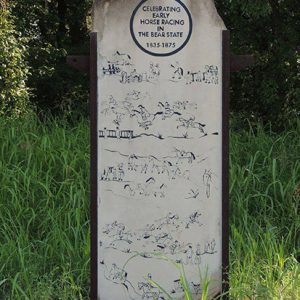 Horse Racing Marker
Horse Racing Marker 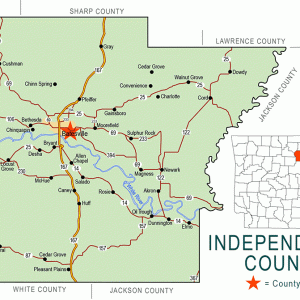 Independence County Map
Independence County Map 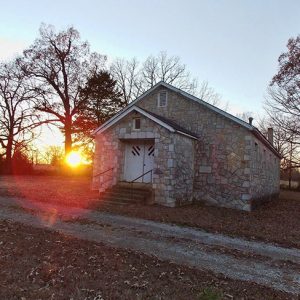 Pleasant Hill Church
Pleasant Hill Church 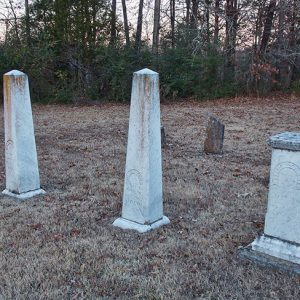 Tunstall Gravestones
Tunstall Gravestones 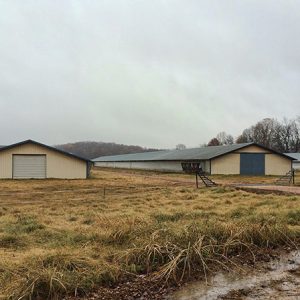 Tunstall's Racetrack Site
Tunstall's Racetrack Site 



Comments
No comments on this entry yet.